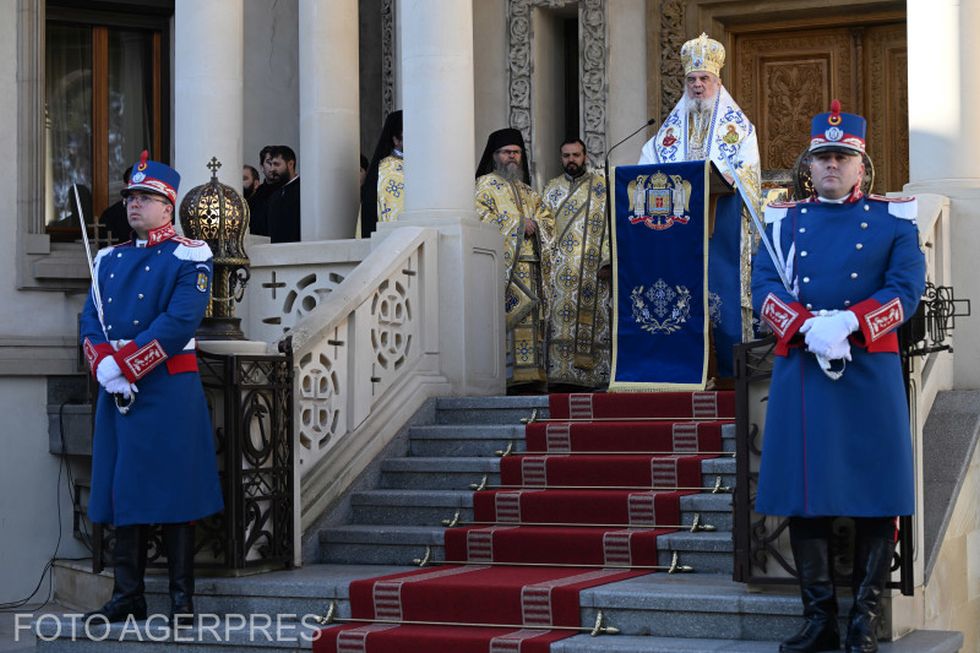Romania’s post-war recovery
Humankind finds it really difficult to recover after the war. Leaving aside the huge cost of material damages, people should go through a healing process after experiencing the trauma of loosing family members or close friends

Steliu Lambru, 06.08.2018, 12:00
This is definitely a painstaking and lengthy process. Fortunately, people brace up to avert the fateful consequences of the war; besides, any obstacle would finally be overcome, thanks to the effort made by the succeeding generations.
Notwithstanding, war-generated traumas are a lot more difficult to heal when the foundation is not properly laid. The communist regime instated by the Red Army in all Central and East European countries tried to rebuild the societies it violently occupied by repressing those who had a different opinion. It is exactly what happened in Romania, whose recovery after the war was more difficult than that of any other country that had not been occupied by the Soviets, although the reported volume of damage was lower than in other countries.
In the mid-1940s, when everything went well and people tried to reclaim their lives, the newly-instated communist government found it really hard to deal with the difficulties posed by the countrys post-war recovery. The government made the already big problems even more difficult to solve, because incapable people, lacking any political and administrative experience had been appointed to prominent positions only for being obedient.
Indigence had mainly to do with food supplies, heating possibilities for the population at large and urban mobility. Stefan Barlea was an ordinary young man. He was a high-school student in the 1940s. Later he would climb up the ladder of the communist partys high-level hierarchy. In 2002, Stefan Barlea was interviewed by Radio Romanias Oral History Centre and he recalled the day-to-day hardships Bucharesters had to cope with, as well as the difficulties all those living in Romanias major cities had to face.
Stefan Barlea: In 1946, we had very serious supply problems, actually that occurred as early as 1945. Transportation was an awful mess, and so were the supply means, the day-to-day life, there was a shortage of fuel. In 1946 economy was picking up as well, be it capitalist, cooperative, private, Im not speaking about the state economy…It was already being given an impetus with all possible means, jobs began to be taken, all people who had fled during the war had returned to their place of origin, schools were functioning, while the most difficult thing had to do with the transport means. It was unimaginable, words fail me at that, but whoever lived those times had a complete grasp of what the fated aftermath of the war meant.
Public Transportation in Bucharest was quite a desolating picture. Travel conditions were hard to imagine and accidents often happened.
Stefan Barlea: “Trams were most of the time overcrowded and used to travel with people clinging to them. In 1945, many of Bucharests inhabitants who had fled the city, were returning home. Until people found their place in society and activity returned to normal, winter had already set in. In 1945, one would wait even half an hour for a tram to come as there were but a few of them. We lived in the remote Ghencea district and needed to go a long way to our school, Lazar, in downtown Bucharest. I needed to wake up an hour or two earlier to be sure I could get on a tram. As the tram railways were just in front of our home, I often used to take the tram in the opposite direction and got off one or two stops away. There, I got on a tram running towards the city centre, in order to be able to find a vacant seat. People would travel on the trams buffers and deadly accidents were commonplace. Transport was a big issue when the school year started. In summer we would walk to school and back home almost on a regular basis.
Food supply and distribution was also a difficult issue and the authorities resorted to ration schemes to cope with the shortage of foodstuffs. It was an emergency, completely unsatisfying solution.
Stefan Barlea: “The situation was difficult when it came to bread and meat supplies. They were rationed and sometimes the meat rations werent available. Bread came in bigger supplies but they werent enough either. So huge lines would form most of the time. People would wake up at two or three in the night to buy a piece of meat. So it was very painful when dictator Ceausescu had again to introduce the rationing system something that our country didnt actually need at the time. It was something that threw Romania back in time and I had to experience again at maturity the things I saw as a child. Ceausescu did that and it was a stupid mistake; he argued that we had to pay back a big foreign debt, which actually stood at 12-13 billion dollars, that is considerably lower than that of Hungary or Poland, for instance.
Romanias material recovery after WWII was a huge effort on the part of the whole society and the pressure exerted by the aberrant communist ideology made it even harder.






























